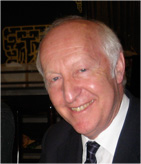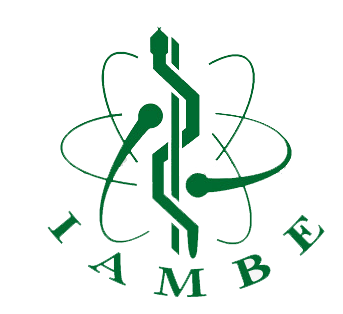
Professor Peter Rolfe’s Biomedical Engineering career spans more than 40 years. Following his undergraduate education in Electrical Engineering and a period working in industry on avionics and aircraft guidance systems, he retrained in physiology and biophysics, obtaining his PhD at the Royal Postgraduate Medical School – now Imperial College – at London University. His early research interests were on the development of measurement systems to study physiological control processes especially in the human fetus and ill newborn baby, continuing this work at the University of Oxford. He established the international conference on Fetal and Neonatal Physiological Measurement, also producing books on this topic.
In parallel with his work on advanced measurement technologies he became a consultant to the World Health Organisation. He established collaborative research and training programmes in developing countries with a focus on the role of appropriate technology for Maternal and Child Health. Studies on the development of simple technologies for thermal control of the newborn and for biochemical analysis involved hospitals and governmental agencies in India, Nepal, Thailand, Inner Mongolia, China and several African countries. The training of technical staff in equipment management was critical to success. He became Director of a WHO Collaborating Centre.
He continues work on electro-chemical and optical micro- and nanosensors for invasive measurement of blood gases, ions and metabolites, and on point-of-care sensors for health screening. Problems of biocompatibility of implanted sensors have involved the study of biomimetic materials to control protein adsorption at sensor surfaces. He has had a major interest in non-invasive measurement, especially based on optics. He led the first European multi-disciplinary projects investigating near infra-red spectroscopy (NIRS) for in vivo monitoring in the fetus, the newborn and adult, especially for the brain and muscle. His group developed NIRS instruments that were manufactured by the Radiometer Company, and they also extended this work into NIRS tomography and non-invasive biochemical measurement using multivariate analysis. His measurements interests have also extended into environmental monitoring, especially for investigating indoor air quality.
His work took him closer again to the biophysics of cells and, in 1989, he became co-Chairman of a new IFMBE Working Group on Cellular Engineering, and he established an international programme in Cell and Tissue Engineering. He established the Centre (now Institute) for Science and Technology in Medicine at Keele University. He continues development of specialised bioreactors to re-create in vivo conditions for cell culture. Using his invasive and non-invasive sensing devices he investigates fundamental cellular processes, especially in stem cells, devising control systems to optimise cell, tissue and organ growth.
He has held established and visiting professorial positions in the UK, Italy, Japan, and China. Whilst Director of the Biomedical Engineering Centre at Oxford University he also set up several spin-out companies, and he maintains an interest in university-industry liaison and intellectual property management. He was Chairman of the UK’s Engineering and Physical Sciences Research Council (EPSRC) Medical Engineering Committee. He has been Editor-in-Chief of the IFMBE journal Medical & Biological Engineering and Computing (MBEC).
